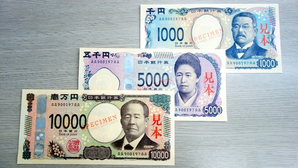
New Delhi, Nov 4 (IANS) Bangladesh’s strategy of borrowing in Japanese yen to avoid paying high dollar-based interest rates has started backfiring due to the currency volatility and rising interest rates in Japan.
The South Asian country has, for instance, ended up losing $13 million to exchange rate differences on a recent $600 million budget support loan from the Asian Development Bank, taken entirely in yen, according to a report in Bangladesh’s Business Standard newspaper.
Last year, too, the government took a $300 million loan for the Bangladesh Second Recovery & Resilience Development Policy in yen. Another $400 million Climate Resilient Inclusive Development Programme loan from the Asian Infrastructure Investment Bank (AIIB) was also denominated in yen. Similarly, a $100 million portion of a World Bank budget support loan for the Resilient Urban and Territorial Development Project was taken in yen, the report states.
Despite the appeal of low interest rates in Japan, the downside risks are growing. The yen has appreciated by about 7 per cent against the US dollar in just one month, and Japan’s interest rates are trending upward. This combination threatens to raise the real cost of repaying yen-denominated loans, especially for a country like Bangladesh, whose reserves are still overwhelmingly dollar-based, the report states.
Nowhere is this risk more visible than in the World Bank-financed Chattogram Water Supply Improvement Project. The $280 million loan was split between dollars and yen, with half – 21.3 billion yen or $140 million – taken in yen to hedge against dollar interest rate hikes. The rest remains in dollars.
But with repayments nearing, the Chattogram Water and Sewerage Authority (Wasa) is facing an annual debt service burden of over $23 million for six years—around 300 crore takas per year. Officials warn this could severely strain Wasa’s finances, especially as the project does not generate commercial revenues, the report points out.
Chattogram Wasa Managing Director Muhammad Anwar Pasha said that foreign loan decisions are made at the policy level by the Local Government Division, Finance Division, and the Economic Relations Division (ERD), adding that any action on easing the repayment pressure would require government intervention.
At the same Executive Committee of the National Economic Council (Ecnec) meeting that approved the Chattogram project on 20 April, another major yen loan was greenlit – a $650 million World Bank loan for the Bay Terminal Marine Infrastructure Development Project, of which $400 million will be taken in yen to avoid high market-based interest on the dollar-denominated portion.
The yen-denominated debt is growing fast. ERD data shows that as of 30 June 2024, Bangladesh’s yen loan portfolio stood at nearly $12 billion—up from $7.52 billion just four years earlier, the report points out.
But Finance Division officials are raising red flags. What was once seen as a strategic hedge now carries mounting risks. Exchange rate fluctuations between the yen and the dollar have exposed Bangladesh to new vulnerabilities, particularly in the absence of a formal policy guiding the use of market-based or non-dollar loans, the report added.
–IANS
sps/vd




